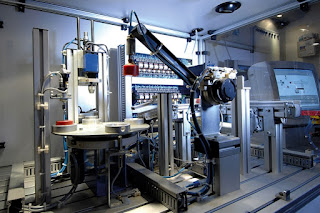Embrace manufacturing process automation in your business

Imagine you're a business owner. You're responsible for the products that leave your factory floor and enter the retail market. You have deadlines to meet and competition to outpace. In short, your business relies on a smoothly running production process. Now imagine that process is automated. You might be thinking, "Isn't automation expensive and time-consuming?" The answer is: not necessary. In fact, there are a number of Manufacturing Automation process that is both affordable and easy to use. In this article, we'll take a look at some of the best ones. What is Automation in Manufacturing? Manufacturing process automation is the use of technology to make a process in a manufacturing plant more efficient. It can be as simple as using a machine to do the work of a human, or as complex as installing an entire computer system to manage a factory floor. There are many advantages to embracing manufacturing process automation in your business. First, it can h
